Quotes & Sayings About Queen Elizabeth The First
Enjoy reading and share 12 famous quotes about Queen Elizabeth The First with everyone.
Top Queen Elizabeth The First Quotes
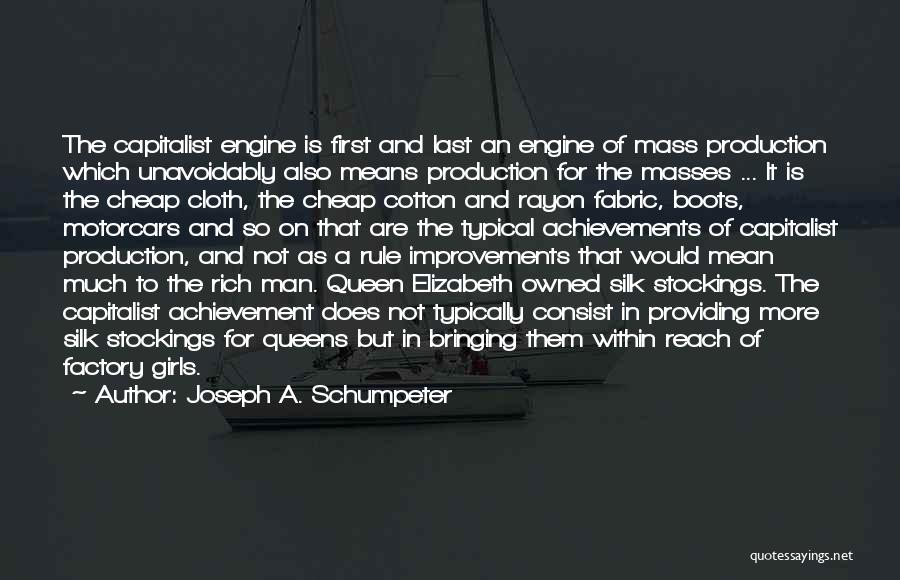
The capitalist engine is first and last an engine of mass production which unavoidably also means production for the masses ... It is the cheap cloth, the cheap cotton and rayon fabric, boots, motorcars and so on that are the typical achievements of capitalist production, and not as a rule improvements that would mean much to the rich man. Queen Elizabeth owned silk stockings. The capitalist achievement does not typically consist in providing more silk stockings for queens but in bringing them within reach of factory girls. — Joseph A. Schumpeter

For many, Christmas is also a time for coming together. But for others, service will come first. — Queen Elizabeth II
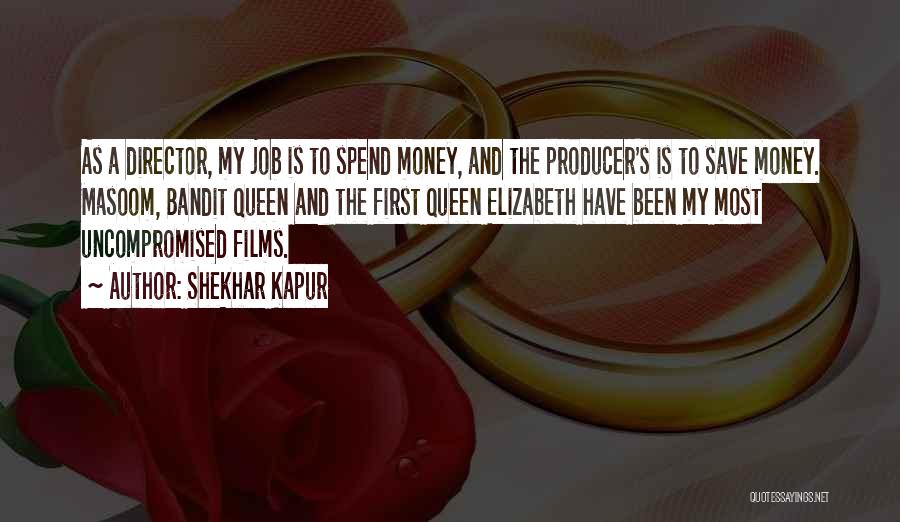
As a director, my job is to spend money, and the producer's is to save money. Masoom, Bandit Queen and the first Queen Elizabeth have been my most uncompromised films. — Shekhar Kapur

First, I want to pay tribute to Diana myself. She was an exceptional and gifted human being. In good times and bad, she never lost her capacity to smile and laugh, nor to inspire others with her warmth and kindness. I admired and respected her - for her energy and commitment to others, and especially for her devotion to her two boys. — Queen Elizabeth II

This new power, which has proved itself to be such a terrifying weapon of destruction, is harnessed for the first time for the common good of our community. — Queen Elizabeth II

Or consider how we citizens of rich countries obtain our oil and minerals. Teodoro Obiang, the dictator of tiny Equatorial Guinea, sells most of his country's oil to American corporations, among them Exxon Mobil, Marathon, and Hess. Although his official salary is a modest $60,000, this ruler of a country of 550,000 people is richer than Queen Elizabeth II. He owns six private jets and a $35 million house in Malibu, as well as other houses in Maryland and Cape Town and a fleet of Lamborghinis, Ferraris, and Bentleys. Most of the people over whom he rules live in extreme poverty, with a life expectancy of forty-nine and an infant mortality of eighty-seven per one thousand (this means that more than one child in twelve dies before its first birthday). — Peter Singer

Cruel and paradoxical though it undoubtedly is, the record shows that yje most succesful 20th century monarchs have been those who were not actually born to succeed. King George VI was 41 when the abdication of Edward VIII propelled him suddenly and unexpectedly to take up the crown; and Queen Elizabeth II spent her first decade with no inkling thay she herself might one day have to reign. Taken together, these examples suggest that the best preparation for the job of sovereign is not to be prepared for it at all, ir not to be too well prepared for it, or for too long. — David Cannadine
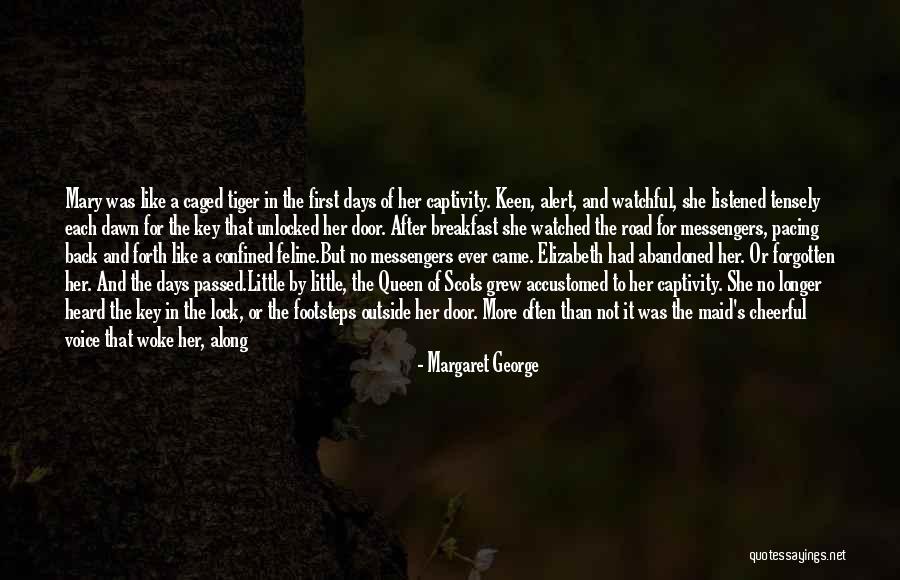
Mary was like a caged tiger in the first days of her captivity. Keen, alert, and watchful, she listened tensely each dawn for the key that unlocked her door. After breakfast she watched the road for messengers, pacing back and forth like a confined feline.
But no messengers ever came.
Elizabeth had abandoned her. Or forgotten her.
And the days passed.
Little by little, the Queen of Scots grew accustomed to her captivity. She no longer heard the key in the lock, or the footsteps outside her door. More often than not it was the maid's cheerful voice that woke her, along with the hand on Mary's shoulder and the delicious smells wafting from the breakfast tray. — Margaret George
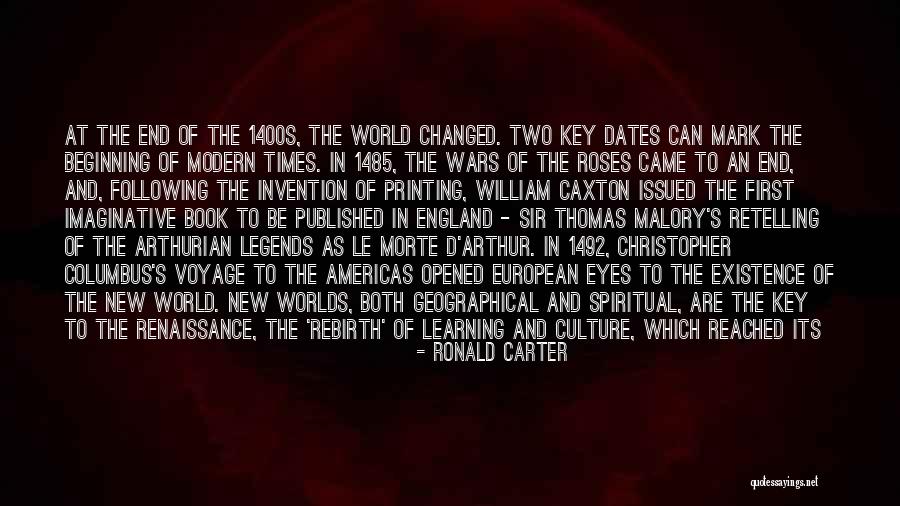
At the end of the 1400s, the world changed. Two key dates can mark the beginning of modern times. In 1485, the Wars of the Roses came to an end, and, following the invention of printing, William Caxton issued the first imaginative book to be published in England - Sir Thomas Malory's retelling of the Arthurian legends as Le Morte D'Arthur. In 1492, Christopher Columbus's voyage to the Americas opened European eyes to the existence of the New World. New worlds, both geographical and spiritual, are the key to the Renaissance, the 'rebirth' of learning and culture, which reached its peak in Italy in the early sixteenth century and in Britain during the reign of Queen Elizabeth I, from 1558 to 1603. — Ronald Carter

Exactly. And her son, King James the Sixth, who afterwards became King James the First of England also, when the English Queen Elizabeth the First died with no children to succeed her." "And King James the Sixth," I asked. "Was he a Catholic or a Protestant?" "Protestant. As was his son, Charles the First. — Susanna Kearsley

Massachusetts, like Queen Elizabeth, encouraged salt making through the granting of monopolies to those who showed the skill to produce salt cheaply. The colony granted Samuel Winslow a ten-year monopoly to employ his ideas on salt producing, which is considered the first patent issued in America. — Mark Kurlansky
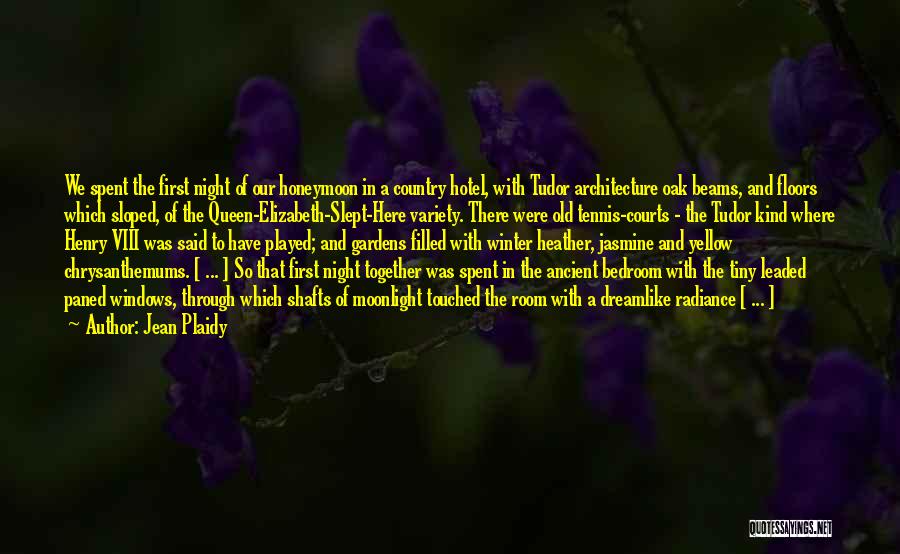
We spent the first night of our honeymoon in a country hotel, with Tudor architecture oak beams, and floors which sloped, of the Queen-Elizabeth-Slept-Here variety. There were old tennis-courts - the Tudor kind where Henry VIII was said to have played; and gardens filled with winter heather, jasmine and yellow chrysanthemums. [ ... ] So that first night together was spent in the ancient bedroom with the tiny leaded paned windows, through which shafts of moonlight touched the room with a dreamlike radiance [ ... ] — Jean Plaidy





